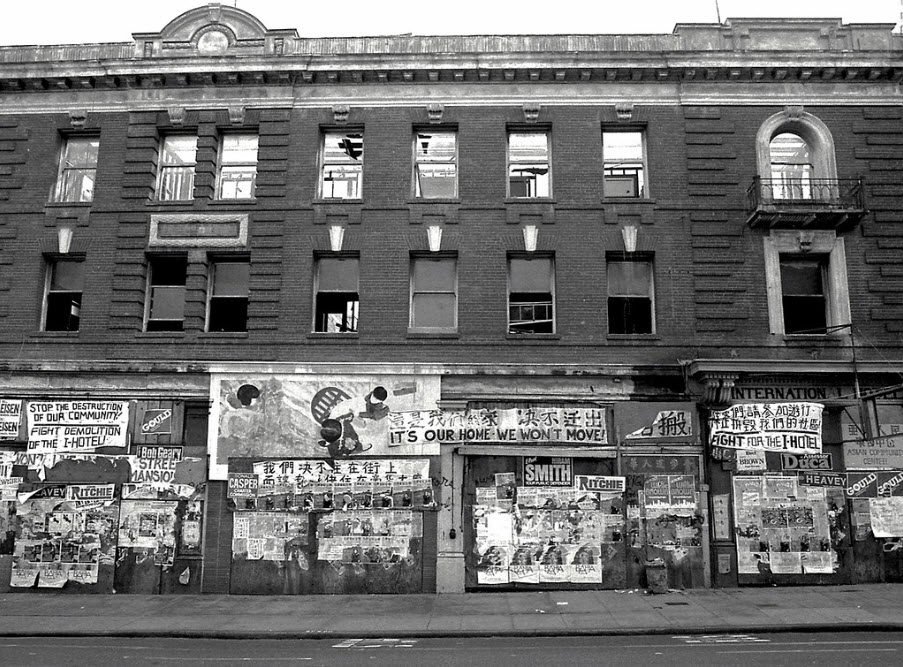During the period of the SF State student strike, Estrella was appointed to a commission to curb the use of guns by the police. The nine-member task force formed by the San Francisco Council of Churches were requesting that Mayor Joseph Alioto make reforms to the police stating, “more stringent regulations concerning the use of weapons by police are necessary because shooting incidents are a source of resentment and a threat to the precarious peace of the city.”
The changes would help counteract “a conviction that people are treated differently by the police if they are minorities,” the report said. The irony is not lost on the author that in Estrella’s work to reduce police violence, the same police were beating student strikers, including Pat, while Canuto was working as a cook at the Hall of Justice feeding the police. The conversations that occurred at the house must have led to some interesting discussions.

Pat spent a lot of time on Kearny Street where the manongs lived in Manilatown and Chinatown. They were cannery and farm workers or clerks in the hospitality industry. Kearny Street had a long residential history for Filipino people and in the 1960’s was still the hub of the Filipino community. Hanging out on Kearney Street was another window of injustice and segregation that Pat witnessed as low-income Filipinos were jammed into and remained in that neighborhood.
In the spring of 1969, PACE supported the anti-eviction campaign at the I-Hotel to block the eviction of the tenants. Key participants also included student activists from the TWLF strikes of SF State and the University of California (UC) Berkeley. This is the same hotel that housed his adopted father, Canuto, upon his arrival in the US in 1927 until 1940. I-Hotel owner Walter Shorenstein, President of Milton Meyer & Company, intended to demolish the building in order to build a multi-level parking lot. In protest, tenants, represented by the United Filipino Association (UFA), marched to Milton Meyer & Company offices and succeeded in obtaining a lease agreement to be signed on March 16, 1969. However, in the early morning hours of March 16, a suspicious arson swept through the north wing of the top floor of the I-Hotel, killing three tenants; Pio Rosete, Marcario Salermo and Robert Knau. Milton Meyer & Company backed away from the lease agreement and used the fire as justification for the demolition of an “unsafe” building.
After the fire broke out at the I-Hotel, Estrella, as the President of the Philippine American Cultural Foundation, wrote to Walter Shorenstein, the president of the firm that controlled the I-Hotel, stating, “the tragedy that struck the tenants of the International Hotel has deeply moved me to write to you…I agree with you that all could have been averted were it not for the bungling political leadership.” In this letter, Estrella was specifically blaming the Board of Supervisors and the City of San Francisco administration for not identifying fire code violations which contributed to the fire at the I-Hotel. A week prior to the fire, the fire inspection found “No Violations.”
Estrella was also instrumental in changing immigration laws that removed barriers for foreign dentists to practice in California, which was written by Democrat Assembly Willie L. Brown, Jr. and commended by Milton Marks of the California Senate. The bill which allowed foreign-trained dentists to take the California dental exam passed 69-0. The bill was backed by the Southern and Northern California Dental Associations and the Filipino Dental Society of California.